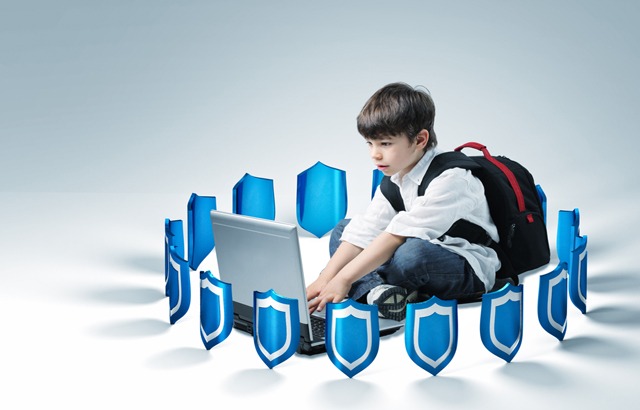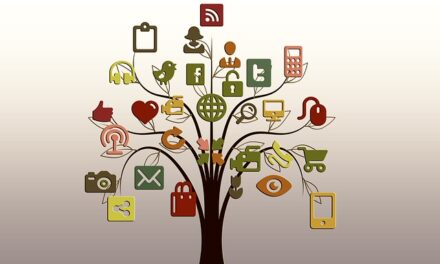No, it isn’t a new dance or a new phone app or even a new on-line game. COPPA is the Children’s Online Privacy Protection Act of 1998. The Rule Summary according to the Federal Trade Commission (FTC) is that “COPPA imposes certain requirements on operators of websites or online services directed to children under 13 years of age, and on operators of other websites or online services that have actual knowledge that they are collecting personal information online from a child under 13 years of age.” And now you’re wondering who is collecting data from my children?
It is hard for all of us to keep up with technology today. But it is everywhere. Cell phones, computer games, fitness trackers, ATMs, and e-mail are all forms of technology used every day. Our children are often the ones teaching us about new developments in technology. They seem to be able to use it so effortlessly. They grew up with it and the rest of us are just trying to keep up with it. The fact is however that adults need to be responsible for ensuring the on-line protection of children. So how do we keep our children safe?
COPPA was an early attempt to deal with the internet and on-line activities directed towards children. But the internet evolves quickly and both companies and consumers are reacting to it. To protect our children, we should think and take a moment to ask ourselves “who are we inviting into the house?” We tell our children not to talk to strangers, we certainly wouldn’t invite any stranger into our homes, but how many times are we asked to complete information on-line. It comes in the form of “registering”. I did it myself to ‘register’ a newly purchased refrigerator because it was easier than sending in the paperwork. The manufacturer now has my name, address, e-mail, telephone number, etc. But I am an adult and was able make a conscious decision to register this appliance. Manufacturers of childrens’ games and toys often want to register the toys and their owners, computer or personal device manufacturers ask to have products and their owners registered, as well as every store on-line or at the mall that would like to track spending, give you reward points etc. You should be selective with whom you share your data – they are a stranger aren’t they? A parent or guardian should be the one to both decide and register.
As I’ve indicated the internet and technology is always evolving. This Christmas we’ve seen a new round of security and privacy concerns arise around more than one consumer. A doll that is connected to the internet in order to allow children to speak to the doll and have the doll respond. I would have loved a doll that interacted with me as a child. But this connectivity, is connecting and chatting with a child in your house, probably in their room. Those conversations are being saved and are certainly accessible to individuals in the company but could also be hacked according to a recent article entitled “Hello Barbie: She’s just insecure” by Laura Hautala of C|Net. Mattel is setting up a bounty to help identify and fix bugs. But the iconic doll has never been internet enabled before so are such toy manufacturers set up with Certified Information Privacy Professionals (CIPPs) or Certified Information Systems Security Professionals (CISSPs) to evaluate and test systems and software before their products go out the door? Do they have standards guidelines or quality checks for their software? And what about the individuals supporting the products? If you’re going to report a problem, then where do you report it? And again, you won’t know the individual to whom you are reporting them problem – they are a stranger so only an adult should be interacting with these individuals rather than someone under-aged and unaware of the details they could be revealing about themselves and your household.
Another popular item this season were drones and other flying models. But did you know that if you own a drone you are required by the FAA to register the drone? You are presently allowed 30 days to register unless you owned the drone before December 21, 2015 and then you have until February 19, 2016 to register it. Your registration will be tracked by the FAA and its contractor. This means individuals as young as 13 may have names, addresses and registration numbers tracked but they could also be made publically available. According to John Goglia, a Contributor for Forbes, this is because of a Department of Transportation “policy that if someone requests the name and address of a drone registrant the information will be released by the FAA.” This is being fought by the Academy of Model Aeronautics (AMA). You can find out more about the FAA “drone” or “unmanned aircraft systems” policies and registration at the FAA website: www.faa.gov/uas. This is a case where the FAA is trying to quickly put some context into place wherein the drone and model operators can operate while there is no connectivity between drones or aircraft and they are trying to ensure a degree of public safety. Technology is moving faster than policy or best practice in some cases. So again, as a parent, a guardian, or the adult, stop and think about that cool drone and whether your child should have one. You may decide to wait a few years.
It is important to note that although we are engaged in a topics of technology and computer literacy in this blog that our aim is to help people understand how technology impacts us as people rather than the bits and bytes. We want to improve everyday understanding of a digital world, how to improve lives, protect lives, and educate. With this in mind, you should understand that all responsible companies want to safely provide you products and services that you want and can use. But it is also your responsibility and our responsibility as a community to promote safety and ensure public concerns are taken into consideration regarding consumer products and services and how they may impact our families. So stop and think about not talking to strangers, not inviting strangers in your house, and not giving out your information in a digital sense before you hit “Register” on-line or provide any information about your household, particularly your children.








